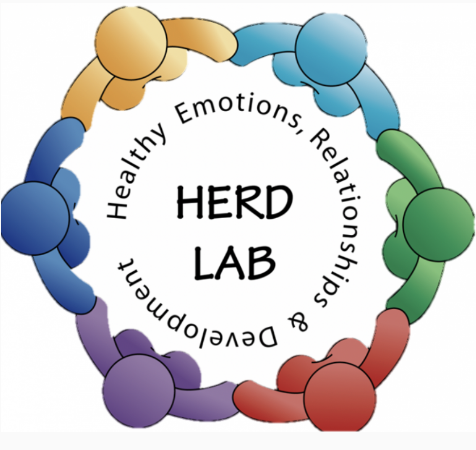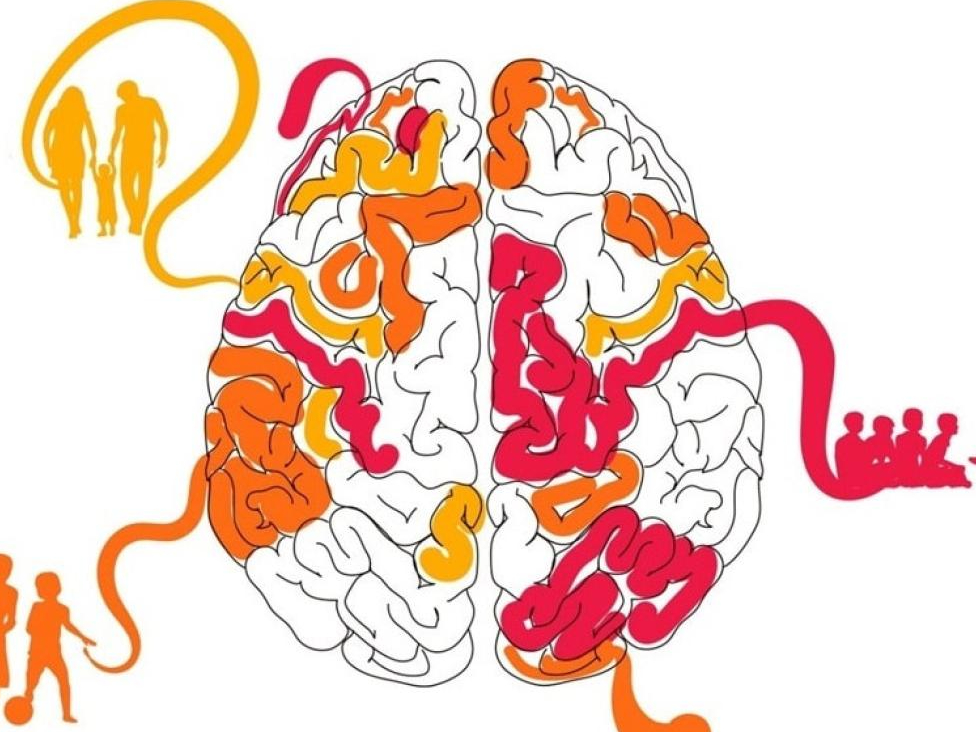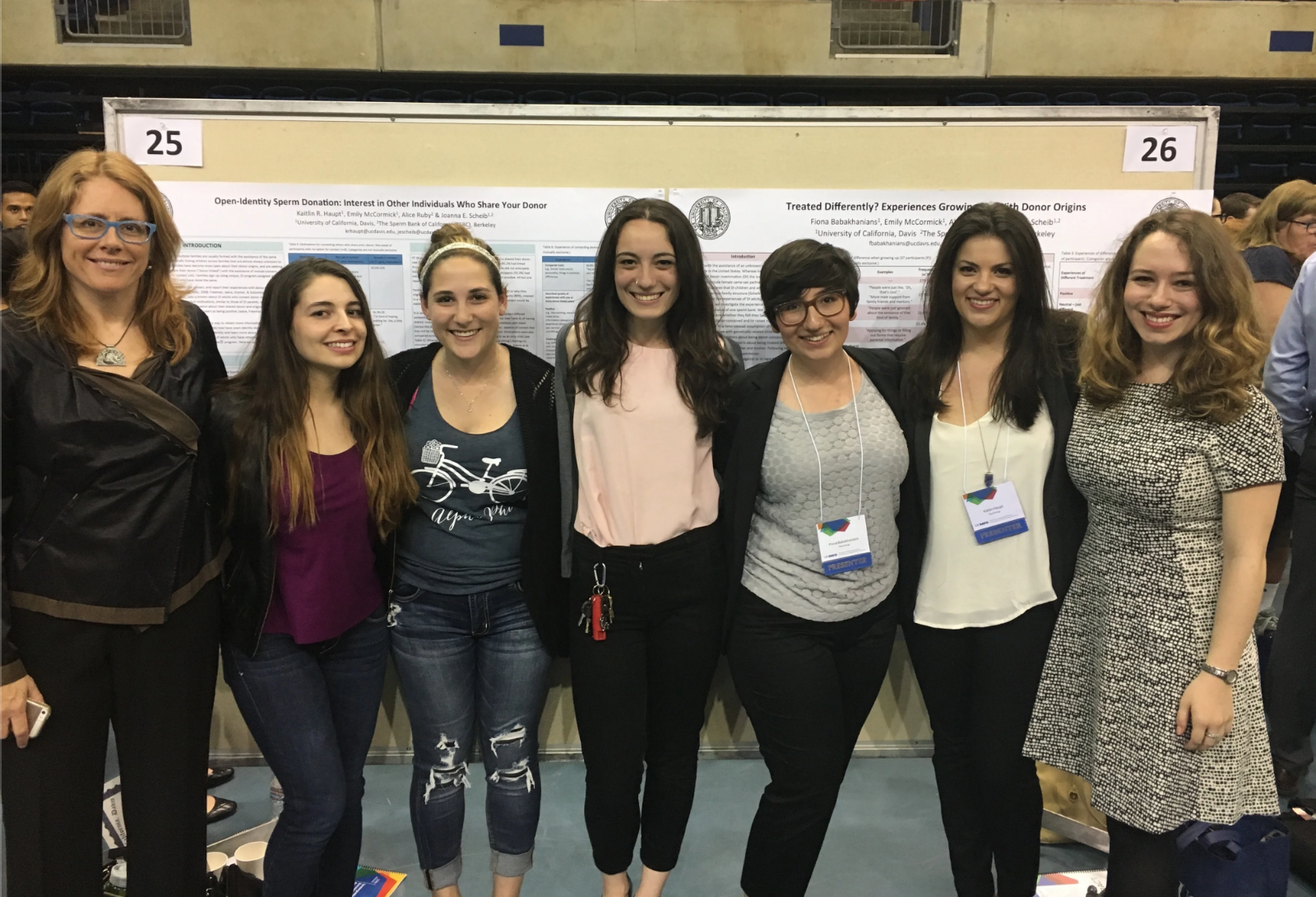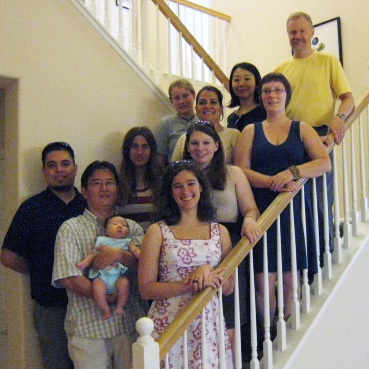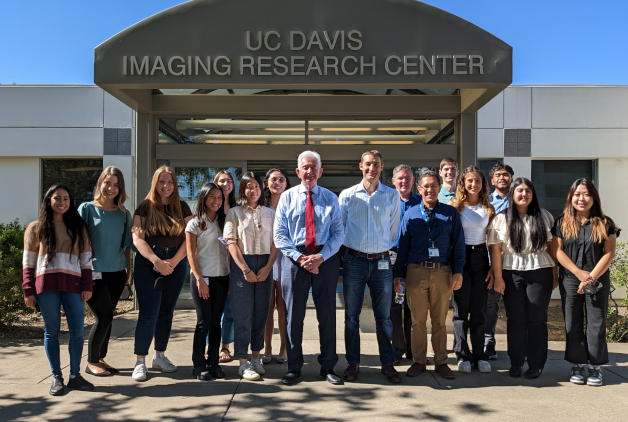Mood and anxiety disorders are more likely to occur in women, yet most mouse models focus on males. Using the monogamous California mouse, we study the effects of stress on the brain and behavior.
Research Labs
The Dynamics in Psychological Science (DIPS) lab is dedicated to advancing the science of psychology via the synthesis of intra- and inter-individual approaches to studying psychological processes. Specifically, we are interested in how intra-individual dynamical information can be retained and used to explain inter-individual differences across a population.
The laboratory is interested in a fundamental behavioral neuroscience question: How do experiences that occur throughout the lifetime produce enduring effects on brain and behavior? To address this question, we focus on the experience of motherhood.
The HERD Lab explores the factors contributing to children’s social and emotional development. We examine the contributions of “nurture” through children’s close relationships with family and friends, and “nature” through their autonomic and neuroendocrine regulatory systems. Our focus is on understanding how these factors shape developmental trajectories toward adaptive functioning, like compassion and social competence, and maladaptive functioning, like aggression and anxiety.
- Statistical procedures commonly applied to behavioral data, such as factor analysis, structural equation models, and mixed-effects models, fall under a general statistical framework based on the means, variances and covariances of data. My research concerns extensions and applications of this general framework to the study of clustered, repeated measures, and longitudinal data.
- The Personality, Self and Emotions Laboratory adopts a multifaceted approach to studying the self and personality processes, focusing on a range of pertinent topics including social development, emotion expression and regulation, and self-esteem.
The Ferreira Lab conducts research in the area of psycholinguistics. We take advantage of basic insights from formal linguistics, especially theories in sentence phonology and syntax, to develop models of processing. Our empirical work relies both on behavioral and neural measures, including eyetracking (for measurement of fixations, saccades, and pupil diameter) and the recording of event-related potentials (ERPs). The fundamental aim of this work is to uncover the mechanisms that enable humans to understand and generate language in real time and in cooperation with other cognitive systems.
- The Social Cognition Lab investigates the cognitive processes underlying social psychology and behavior. We are interested in how people perceive themselves, other people and groups of people. Much of our research focuses on stereotyping and prejudice.
The SES Lab focuses on understanding how the life experiences of children and adolescents shape their reactions to stress and their health. We are especially interested in how supportive social relationships reduce the effects of stress on our health, and may promote healthier biological profiles across development. Another goal of our lab is to better understand self-regulation skills, how stress affects these skills and other behaviors that require self-regulation. The long-term vision for this research is to suggest strategies and inform interventions that would reduce the impact of stress on developmental outcomes, especially for disadvantaged youth that too often confront several types of stressors in their lives.
The Visual Cognition Lab investigates how information about the visual world is acquired, identified, retained in memory and manipulated by the cognitive system to support thought and to guide behavior.
This lab uses agent-based models to understand the behavior of individuals and populations in social and evolutionary settings. The lab facilitates the use of agent-based modeling as a general theoretical and methodological tool for analyzing behavior.
The Asian American Center on Disparities Research (AACDR) investigates how cultural factors work to either enhance or mitigate the implementation and effectiveness of evidence-based treatments for Asian Americans. The center focuses on the ethnocultural factors that influence the effectiveness of treatment.
- How do we reach beyond our current experience? One of the most basic challenges that people face in everyday life is how to cross gaps—gaps that separate self from other, now from future, here from there, and us from them. Even the simplest activities, like having a conversation or planning what to do next week, would be impossible if it were not for the human capacity to get unstuck from current experience and relate to other people, future time points and distant contexts. The research in our lab centers around the social psychological tools that humans have developed to help them reach across these distances.
- Paul Eastwick’s research investigates how people initiate romantic relationships and the psychological mechanisms that help romantic partners to remain committed and attached.
Dr. Beck’s research focuses around the question of what personality is. Definitions have big consequences for how we measure personality, what those measures predict both short- and long-term, how personality is thought to change, and more. One way of doing this is to focus on different levels of aggregation. Thus, she studies how to understand the personality of an individual relative to only themself, relative to some others, and relative to all others.
- We are a developmental social cognitive neuroscience laboratory at UC Davis. Our lab is working to uncover how the 'social brain' develops! As humans, we navigate a complex social world in which we communicate, cooperate, and empathize; we reason about the covert contents of the mind to predict and explain overt behavior. From a young age, infants and children are forming the building blocks of social understanding and competent social behavior. We're interested in how the brain supports this development, and how brain developments interact with and are influenced by aspects of the child's environment. We conduct behavioral research in conjunction with the use of EEG, ERP, and fNIRS to examine the neural correlates of social cognition.
Our research integrates behavioral testing (including eye-tracking and pupillometry), computational modeling, and neuroimaging (including ERP and fMRI), to investigate how thinking changes across contexts and to explore the implications for intervention. Most of our projects are conducted at the Center for Mind and Brain.
The Laboratory for the Cognitive Neuroscience of Language focuses on the psychological and neural mechanisms of language comprehension. The lab studies when and how different kinds of contextual information, including syntactic, thematic, semantic and referential information are integrated during reading and listening comprehension, and identifies the neural substrates of these integration processes.
Our lab develops computational and formal models of the biological bases of cognition (computational cognitive neuroscience), focusing on specialization of function in and interactions between hippocampus, prefrontal cortex/basal ganglia, and posterior neocortex in learning, memory, attention, vision, and controlled processing. We test predictions from these models using a range of behavioral and other experimental techniques. Current models are exploring the role of predictive learning based on cortico-thalamic connectivity to bootstrap learning in vision, motor control, and goal-driven cognition.
Gail Goodman's research falls into two major areas: cognitive development and children's abilities and experiences as victims/witnesses. She is also currently studying the effects of child abuse on emotional adjustment/psychopathology.
The goal of our research program is to understand the experiences and well-being of families created through donor conception.
Dr. Ranganath's research concerns the neurocognitive structure of human memory and executive control. One set of studies currently underway concerns the relationship between short-term, or working memory, and long-term memory.
- Translational Affective Neuroscience. Professor Fox studies the neuroscience of social and emotional behavior in both humans and nonhuman primates. There research is focused on emotional and social decision-making and the development of social anxiety disorder.
In the Human Memory Lab we aim to understand how memory works… and why it often fails. We examine factors that influence memory such as stress and aging. We also investigate the brain networks involved in memory using neuroimaging methods like fMRI, and by examining people with memory problems related to medical conditions such as stroke and cardiac arrest.
The first years after birth are critically important for the development of the baby's brain and mind. We know that experience plays an important role in shaping this development. The Infant Cognition Lab studies the baby's developing mind; particularly investigating infants' memory, attention and categorization.
- Our sensory worlds are filled with information, but we are only aware of a small proportion of it at any particular moment in time. Attention is the mechanism that prioritizes processing according to our goals. But what determines what our goals are and how well we can maintain them over time and in the face of distractions? Research in the lab focuses on how behavioral goals and prior experiences interact with sensory events to determine perception and cognition. To study these topics we use a combination of eye-tracking, psychophysics, fMRI and EEG/ERPs, and work with others to use TMS, pharmacology and patient studies.
- The Janata lab investigates how human brains engage with music. Paradigms range from psychophysical studies of the acuity of mental images for pitch, to neuroimaging studies of music-evoked memories and emotions, and behavioral examinations of sensorimotor coupling, i.e how people move along with music.
- Our laboratory focuses on the neural and cognitive mechanisms of attention and working memory in healthy young adults and dysfunction of attention and working memory in psychiatric and neurological disorders. We also work to develop and promote ERP methods, including a yearly 10-day NIH-funded summer workshop (the ERP Boot Camp) and an open-source Matlab toolbox (ERPLAB Toolbox).
The lab uses the comparative method to examine the endocrinology and neurobiology of social bonding. We focus on two monogamous species, the prairie vole (Microtus ochrogaster) and the coppery titi monkey (Callicebus cupreus), while using polygynous species, such as rhesus macaques, as comparisons.
- Our laboratory uses a cognitive neuroscience approach to investigate the cognitive and neural mechanisms of voluntary and reflexive attention in humans. We bring to bear a variety of complementary tools to study attention, including behavioral and psychophysical methods, human electrophysiological measures, and functional neuroimaging. Behavioral and psychophysical methods permit us to analyze the properties of the human attention system and how attention influences perception and performance.
Dr. Krubitzer’s lab examines the anatomical connections and electrophysiological properties of neurons in the neocortex, the portion of the brain responsible for perception, cognition, learning, and memory. Researchers reconstruct the evolution of the neocortex and its relationship to functional changes.
Infants are immersed in a world of immense complexity, yet they display knowledge of the people, objects, actions and sounds in their environments very early in life. Our research explores the mechanisms that support this early learning. In particular, the ability to detect statistical regularities may play a fundamental role in how infants learn about a highly complex, highly salient aspect of the auditory world: language.
Our research focuses on the development of memory and metamemory in childhood. Using behavioral and neuroimaging methods, our studies examine both typical and atypical development of memory in children.
Research in the Mind-Emotion Development Lab focuses on the development of children's knowledge about people in terms of their inner, mental lives – what a person desires, intends, believes, thinks about and feels emotionally.
- Professor Mosley studies intergroup perceptions of cultural appropriation and stigma, copying and stereotyping from the target's perception
The Neurocognitive Development Lab employs a variety of converging research techniques to elucidate the complex brain-behavior relationships that underlie cognitive development.
We're a Quantitative Psychology Lab, headed by Dr. Mijke Rhemtulla. Very broadly, our research examines statistical models for representing psychological constructs and the relations among them.
The purpose of our work is to better understand the psychological development of children, especially in the early years of life, and to apply what we have learned to improving programs, practices, and policies affecting children and their families.
- The Social Inference Lab investigates various topics in the following general areas: (1) perspective taking and mental-state reasoning; (2) cognitive processes involved in social categorization, inference, and judgment; and (3) stereotyping, prejudice, and discrimination.
The Bliss-Moreau Laboratory conducts comparative and translational affective science using multimethod, multispecies, multilevel approaches to understand the social and affective lives of humans and nonhuman animals.
- The learning and decision making (LDM) lab, directed by Erie Boorman, seeks to understand how we make decisions and how we learn from their outcomes, at the behavioral, computational, and neural systems levels. Our research is multi-disciplinary, lying at the intersection between Psychology, Neuroscience, Artificial Intelligence, and Behavioral Economics.
- The Translational Cognitive and Affective (TCAN) Laboratory studies the neural mechanisms of attention, memory, and cognitive control. We also investigate the pathophysiological processes underlying psychotic illness, with a particular focus on the neural circuitry supporting cognitive, emotional, and social processes. Our research integrates behavioral, computational, and functional neuroimaging (fMRI, PET, EEG) along with neuromodulation using pharmacology and brain stimulation (tDCS). Finally, we explore how perturbations in the immune system and drugs like cannabis impact individuals with psychotic illness. Prospective volunteers should email their CV/resume and a brief statement of interest to tcan@ucdavis.edu.
Dr. Wiltgen studies cellular and molecular mechanisms of memory formation in the hippocampus and neocortex. He is particularly interested in systems level consolidation and the process by which new memories are stabilized and maintained over time.




